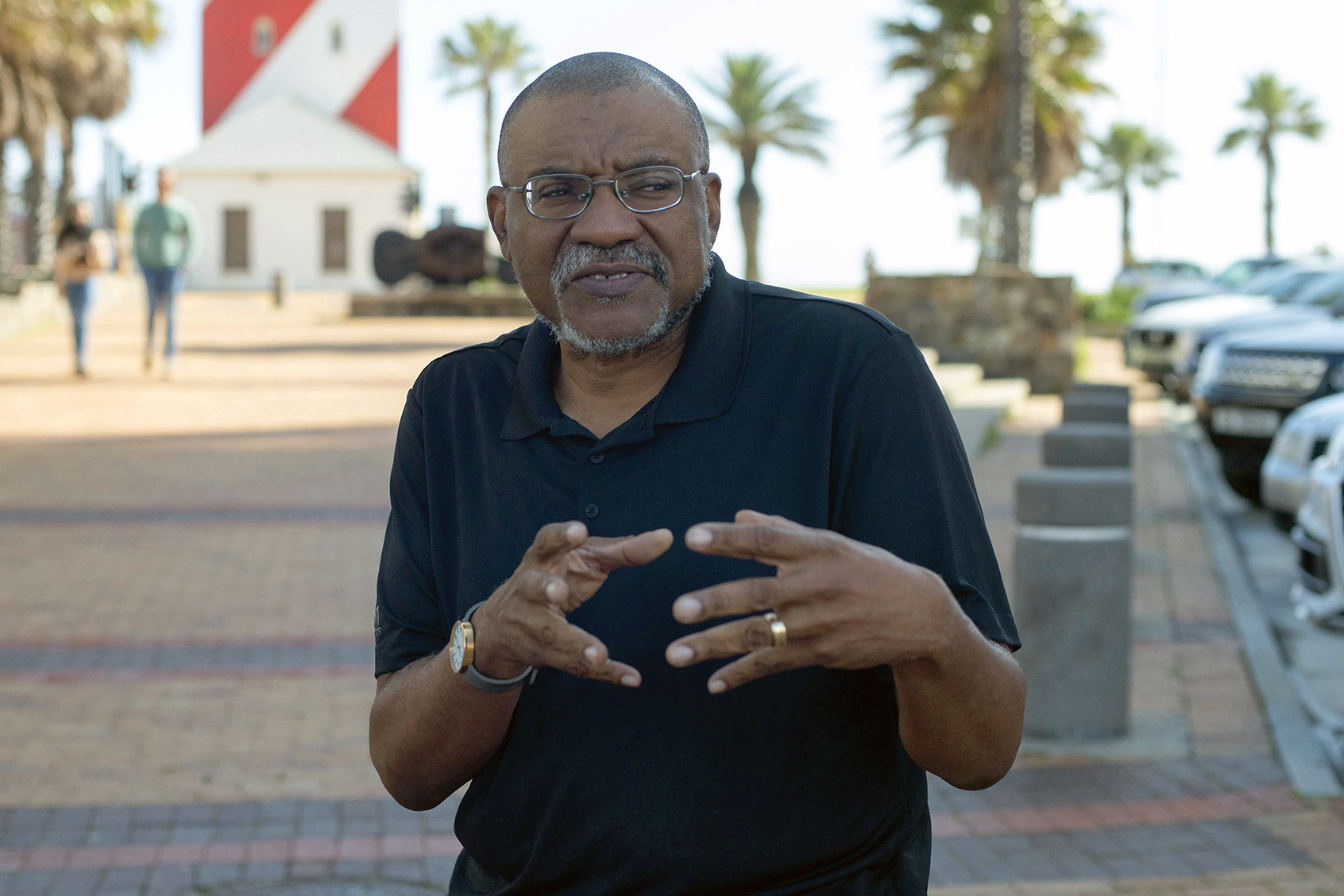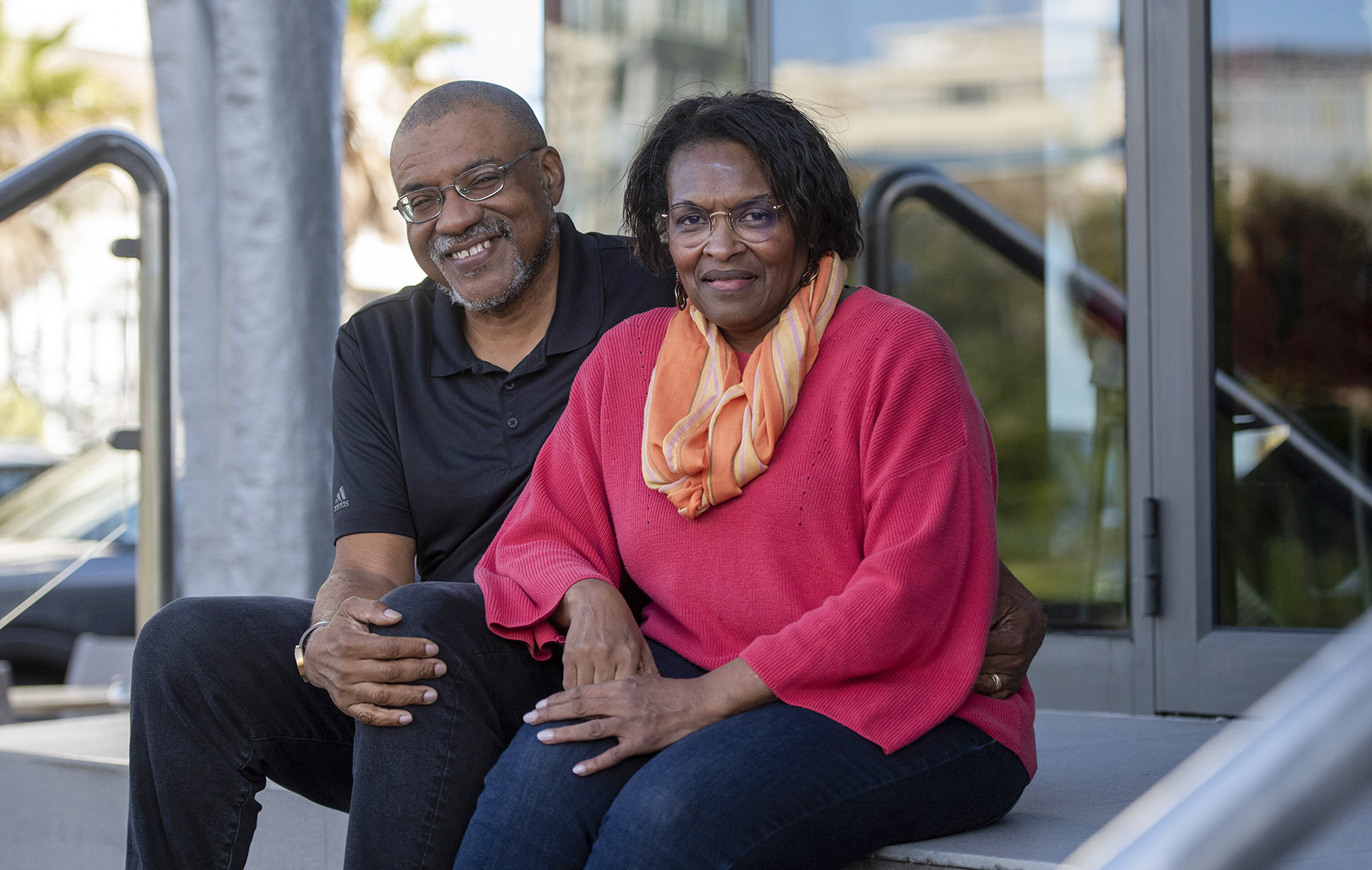While on a trip to Cape Town some years ago, the multi-award-winning, Ghanaian-born poet Kwame Dawes and his colleague and friend Chris Abani, a Nigerian-American author, dreamed up a scheme that fundamentally changed the way the world views African poetry.
Their scheme emerged from the vacuum that was left when Heinemann stopped publishing the African Writers Series in 2003. In the 40 years preceding that, the company had published 359 books by African novelists, poets and politicians.
How would the world know about African literature – and particularly African poetry, often the least-celebrated of the literary arts – if there were no systems in place to nurture and publish talent and provide access to books?
The African Poetry Book Fund (APBF), with funding from Laura and Robert Sillerman, and in partnership with the literary magazine Prairie Schooner, was founded in 2012 and has published more than 120 African poets in that time. The editorial leadership team, headed by Kwame, is made up of Abani, South African poets Gabeba Baderoon and Phillipaa Yaa de Villiers, Booker Prize-winning author Bernardine Evaristo, as well as Aracelis Girmay, John Keene and Matthew Shenoda.
“It’s unprecedented and quite remarkable,” Dawes said over a caffè latte recently on his last day of a whistle-stop trip that included Accra in Ghana and Cape Town. “What it has done is open the way for the other publishers to start paying attention and to start publishing African poetry.”
The APBF’s work is multipronged. Nurturing poetic talent from the continent would be a drive down a cul-de-sac if the poets weren’t being recognised and read, including in their own countries, and the knowledge of the traditions of African poetry and its modern iterations did not become part of a body of knowledge that was available.
The undertaking is vast, and the effects of this colossal vision has shifted the ground in the literary arts radically in recent years. Seven poetry libraries have begun operations around the continent. Two new prizes for African poets have been established. One of them, the Luschei Prize for African poetry, has been won three times by South African poets: Mangaliso Buzani, Koleka Putuma and Kobus Moolman.
Because of the AFBP’s industrious publishing undertaking, other South Africans have gained international readers: Musawenkosi Khanyile, Vuyelwa Maluleke, Len Verwey, Nkateko Masinga, Henk Rossouw and Thabile Makue.
“It’s rare to see collected works of African poets because the publishing establishment has not necessarily engaged with the work in that kind of way.”
And honour – a rare honour for African poets – is being bestowed on Keorapetse Kgositsile, named South Africa’s Poet Laureate in 2006, through the publication of his collected works, which will soon be available. The APBF has also published collected works of the Ghanian poets Ama Ata Aidoo and Kofi Awoonor, and Nigerian poet Gabriel Okara.
“One of the things that people don’t really understand is that in the ecosystem of poetry, an author’s collected works is a point of achievement and recognition,’ Dawes said. ‘It’s rare to see collected works of African poets because the publishing establishment has not necessarily engaged with the work in that kind of way. By publishing these collected works, we draw greater attention to these poets nationally and internationally.”
 Ghanaian born poet & English Professor Kwame Dawes is leading an international team to expand an online portal for African poetry & was in Cape Town recently for a short research visit. (Photo: David Harrison)
Ghanaian born poet & English Professor Kwame Dawes is leading an international team to expand an online portal for African poetry & was in Cape Town recently for a short research visit. (Photo: David Harrison)
Dawes was travelling with his wife, Lorna Dawes. They are the principal investigators for a new project, for which they have just received a generous donation from the Mellon Foundation. The project is to extend the African Poetry Digital Portal. It also has several facets, “but one of the key ones is creating partnerships with universities around the world that have holdings and interest in African poetry to develop a digital hub where all the information about what exists in these holdings can be collected and then can be accessed by scholars and people in an interest in African poetry,” he said.
Lorna, associate professor and social science librarian at the University of Nebraska Libraries, explained that the portal already contained a list of contemporary African poets with their basic biographical details. This was constantly being expanded to become as comprehensive as possible. The portal will also eventually contain a section on African poetry.
“That’s what we’re starting with now in the third year, the collections hub, which will house the resources and primary resources related to African poetry. What this Mellon grant is allowing us to do is to explore and survey our collections,” she said. “It’s easiest to see it as a digital index of Africa source materials.”
She explained that the visit was to link with African librarians to identify “what materials, what collections, what documents, what items in any format” they have. The hub will then be able to point people to where these sources are, give a description of the sources, and provide information about the kind of access available to the document.
The next phase is for the librarians to identify elements of their collections they would like to digitise to make them more accessible.
“The idea is to break down the barrier that is partly there in individual collections, but it is also to kind of reunite related collections digitally.”
It may even bring knowledge and resources to the fore that aren’t stored in libraries. Kwame pointed out, for instance, that a lot of the poetry in South Africa in the Seventies was connected to trade union and protest movements, which might have archives that could be included in the index.
The principle was that once a space was opened for valuing African poetry, anyone with an interest would be drawn to it and contribute towards feeding that space. This has been true of other APBF projects.
“Isolating poetry, paying attention to it, is something that we think is hugely important.”
Lorna explained the complexity of the problem of access to resources and how that leads to a hierarchy of valuation that leaves African poets out in the cold.
Archives, she said, weren’t generally financially well supported. Collections have to be preserved, which is very expensive. They have to be archived. They have to be made accessible to scholars. Decisions about where to spend budgets are usually informed by what society or researchers say is important. The less demand there is for certain documents, the less accessible the available resources become.
“Which is problematic because it means research is only done on what is available. And that perpetuates the notion [that only certain poets are worthy of recognition], but the reason they floated to the top was because research is perpetually being done on their work, so their work is accessible, reproduced and republished.
“It begs the question: which poets are seen as famous and influential? Scholarship is important. The more critical work is done on a poet, the more we see them as important. Libraries have a part to play, and it is my hope as a librarian that this project gives some libraries the resources they need to spend their time on this work.”
Kwame, a prolific poet (20 of the many books he has written are poetry collections) who has been called “the busiest man in literature”, is also the editor of the literary magazine Prairie Schooner, artistic director of the Calabash International Literary Festival, chancellor for the Academy of American Poets and a Fellow of the Royal Society of Literature. He works as a professor of English at the University of Nebraska.
“Typically, and this is globally true,” he said, “when people think of literature, they think primarily of fiction. One of the things about earmarking poetry, which has incredible depth and complexity – the oral, the performative and the written – is that we are giving it a focus that helps libraries, scholars, the writers, anybody, to think about poetry as a distinctive form.
“Isolating poetry, paying attention to it, is something that we think is hugely important. The Mellon Foundation recognised the general and the decolonising value of the work we’re trying to do. Where things are collected and where things become accessible, can determine how things are valued.
“So, it’s big. And it’s necessary. And it’s exciting. Because it’s knowledge. We fear – and we not only fear, but we’ve also witnessed – that when knowledge is not recorded, accounted for and preserved, it can vanish.” DM/ML/MC
In case you missed it, also read Ingrid Jonker Prize winner Jacques Coetzee on political awakening, blindness, poetry and music
https://www.dailymaverick.co.za/article/2022-07-24-ingrid-jonker-prize-winner-jacques-coetzee-on-how-he-wrote-himself-into-blindness-with-poetry-and-music/
Visit Daily Maverick's home page for more news, analysis and investigations




 Ghanaian born poet & English Professor Kwame Dawes is leading an international team to expand an online portal for African poetry & was in Cape Town recently for a short research visit. (Photo: David Harrison)
Ghanaian born poet & English Professor Kwame Dawes is leading an international team to expand an online portal for African poetry & was in Cape Town recently for a short research visit. (Photo: David Harrison) 